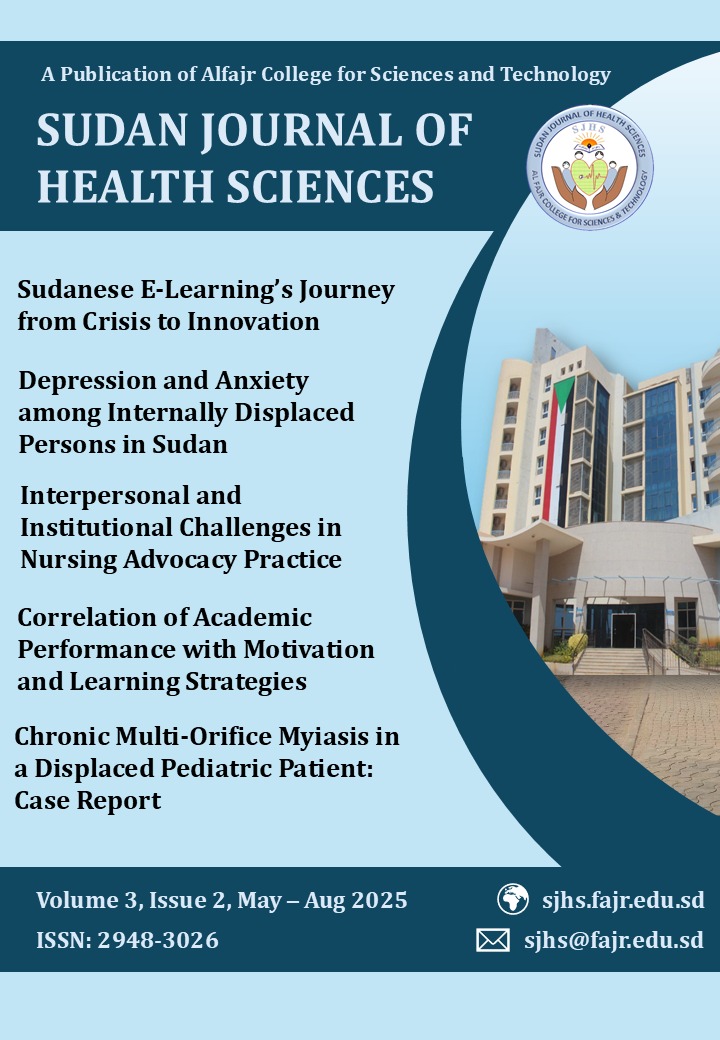Interpersonal and Institutional Challenges to Advocacy in Nursing Practice in Khartoum State, Sudan
DOI:
https://doi.org/10.69993/2025.3.2.en3Keywords:
Advocacy, Health Personnel Attitudes, Community Health Nursing, Nursing Care, EducationAbstract
Background: Nurses play a pivotal role in advocating for their patients and have a substantial impact on healthcare policies at local, regional, and national levels. Their advocacy efforts influence not only the overall health of the population but also the advancement of the nursing profession. Despite this, nurses face significant barriers in fulfilling their advocacy roles. This study aims to identify the interpersonal and institutional challenges faced by nurses in patient advocacy across three nursing disciplines in Sudan: clinical practice, community health, and nursing education.
Methods: This is a descriptive cross-sectional design. Data were gathered from 148 nurses working in clinical practice, community health, nursing, and education using structured Likert-scale questionnaire. The data were analysed using frequency distribution, arithmetic mean, weighted arithmetic mean, standard deviation, and a one-sample t-test.
Results: The study identified multiple interpersonal and institutional challenges affecting nurses’ advocacy efforts across clinical, educational, and community health settings. These challenges included limited organizational support, imbalance of force with physicians, lack of nurses’ knowledge and competency to decide, as well as not having enough nurses to meet the growing healthcare needs of patients. The nurses’ responses to these aspects were mostly “agree” and “strongly agree”. This makes it harder for nurses to effectively advocate for their patients.
Conclusion: Ethical and social factors emerged as critical influences on nurses’ advocacy efforts. Common strategies employed by these healthcare professionals included prioritizing patient safety and educating clients about their rights.


